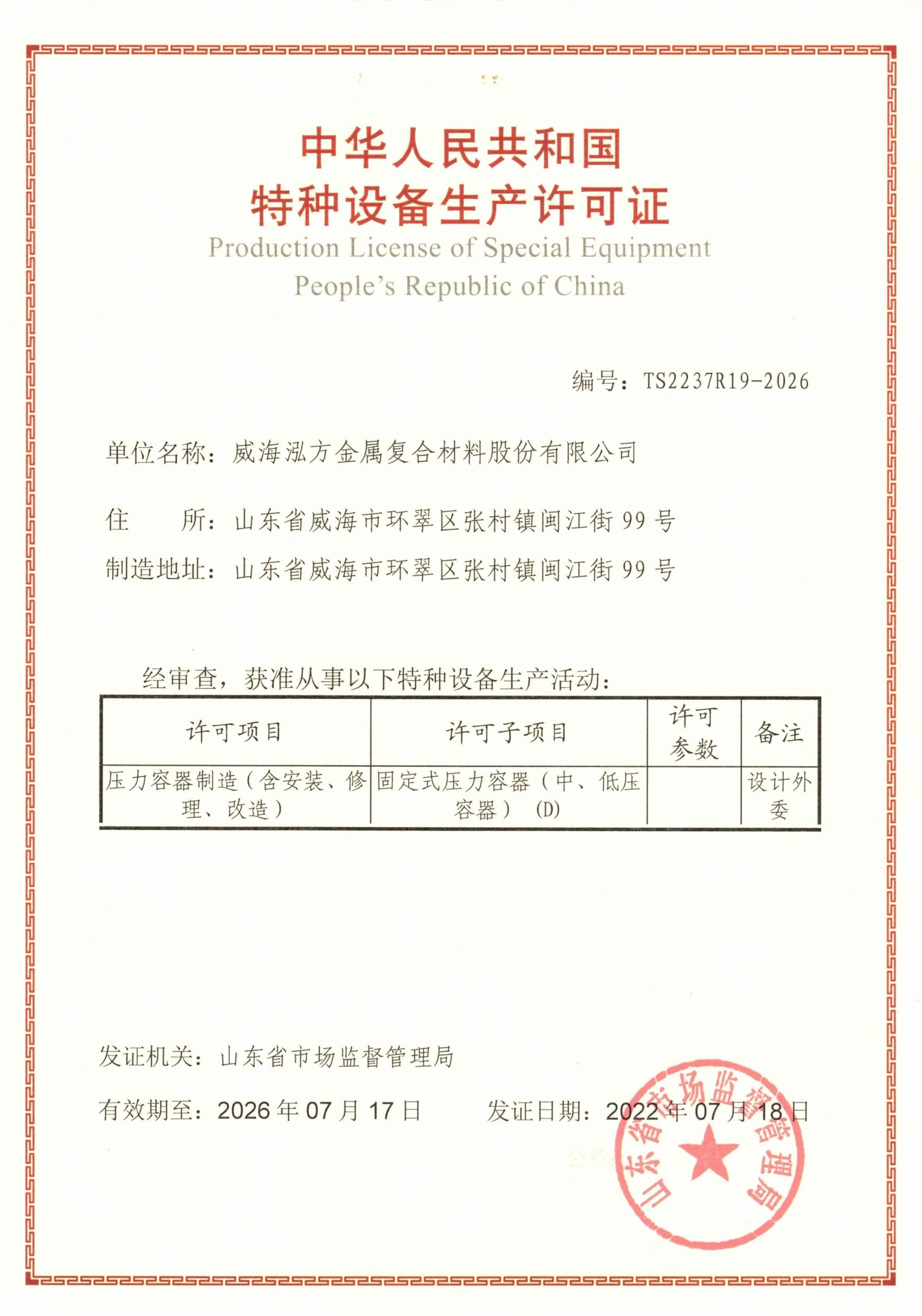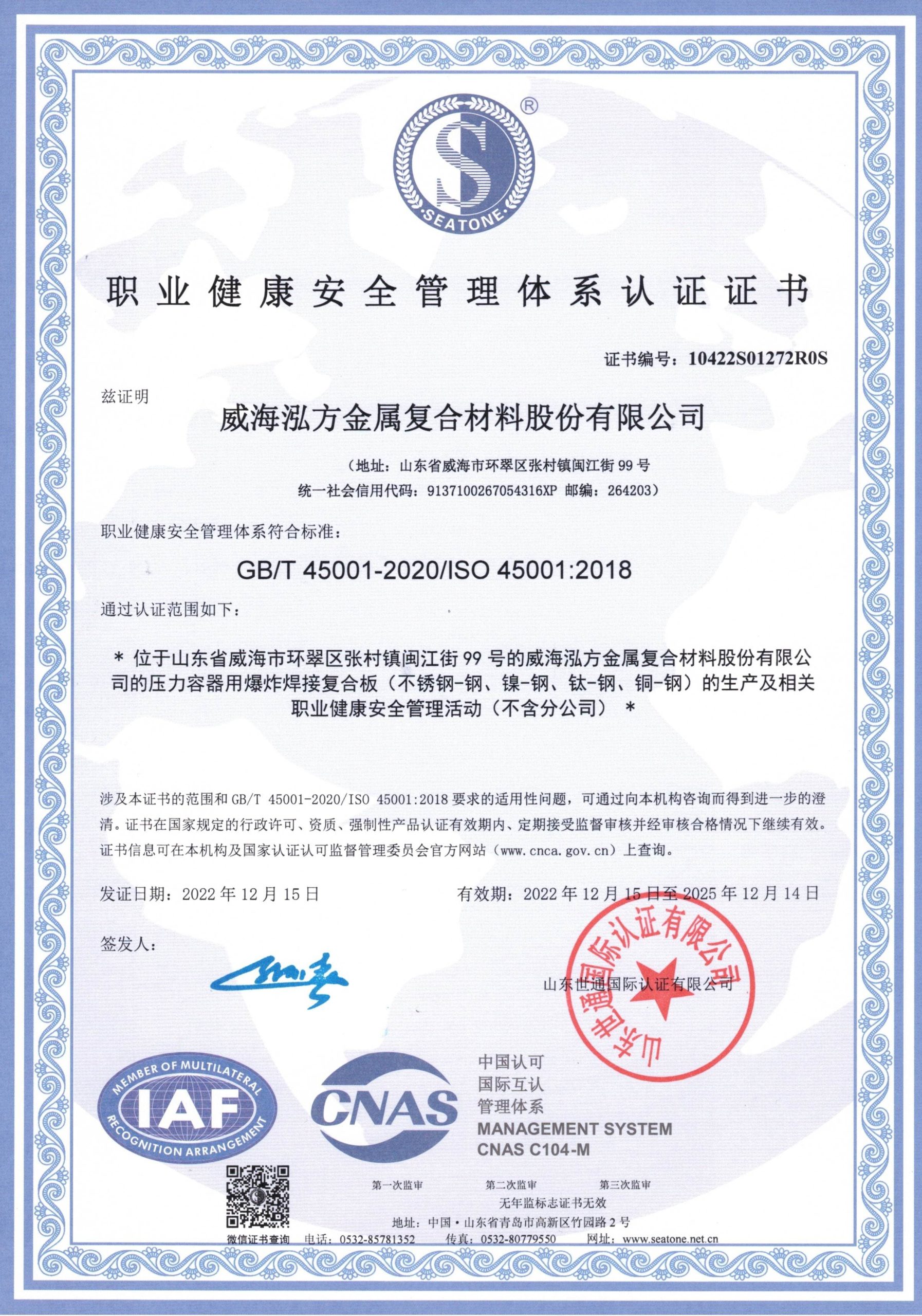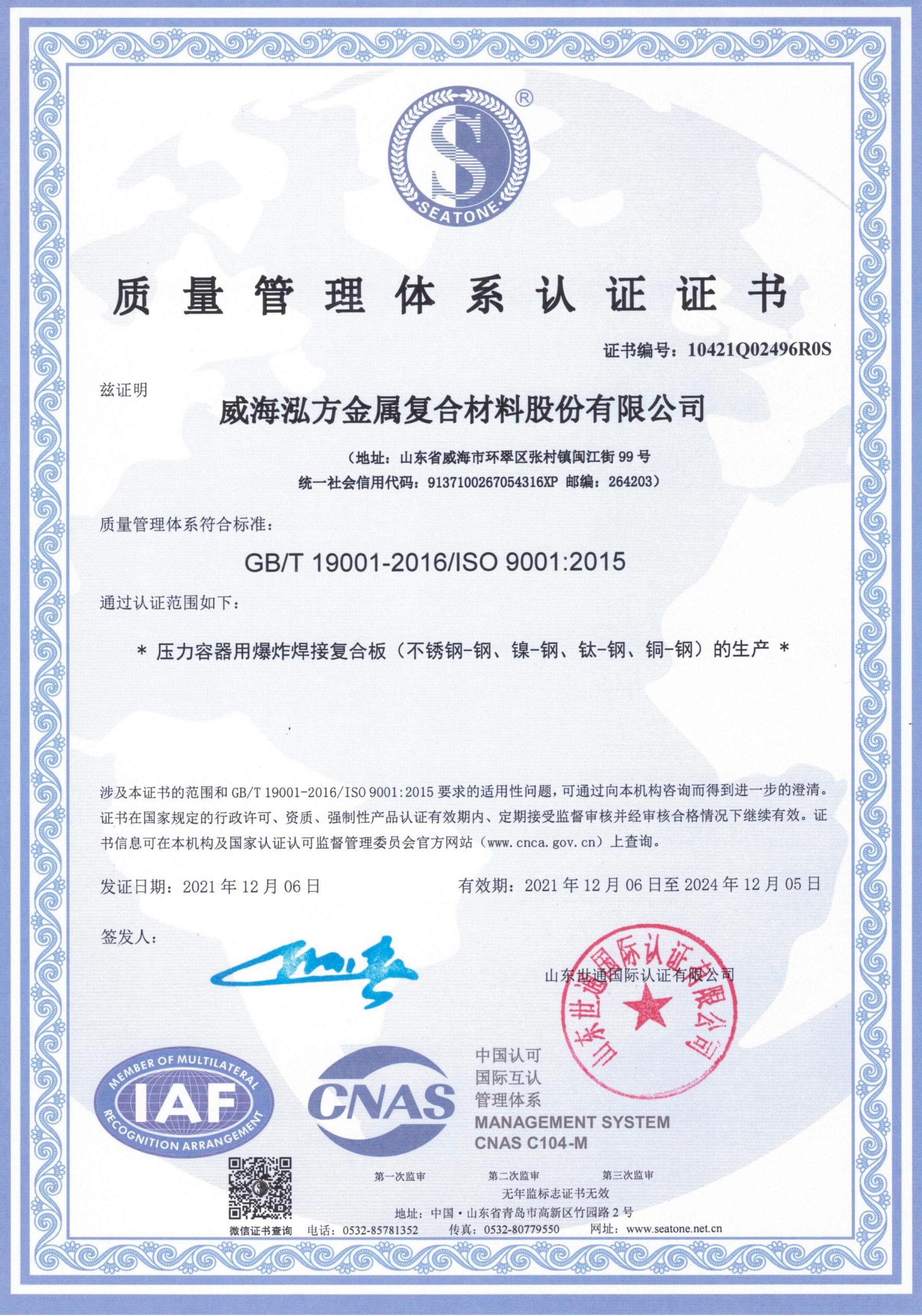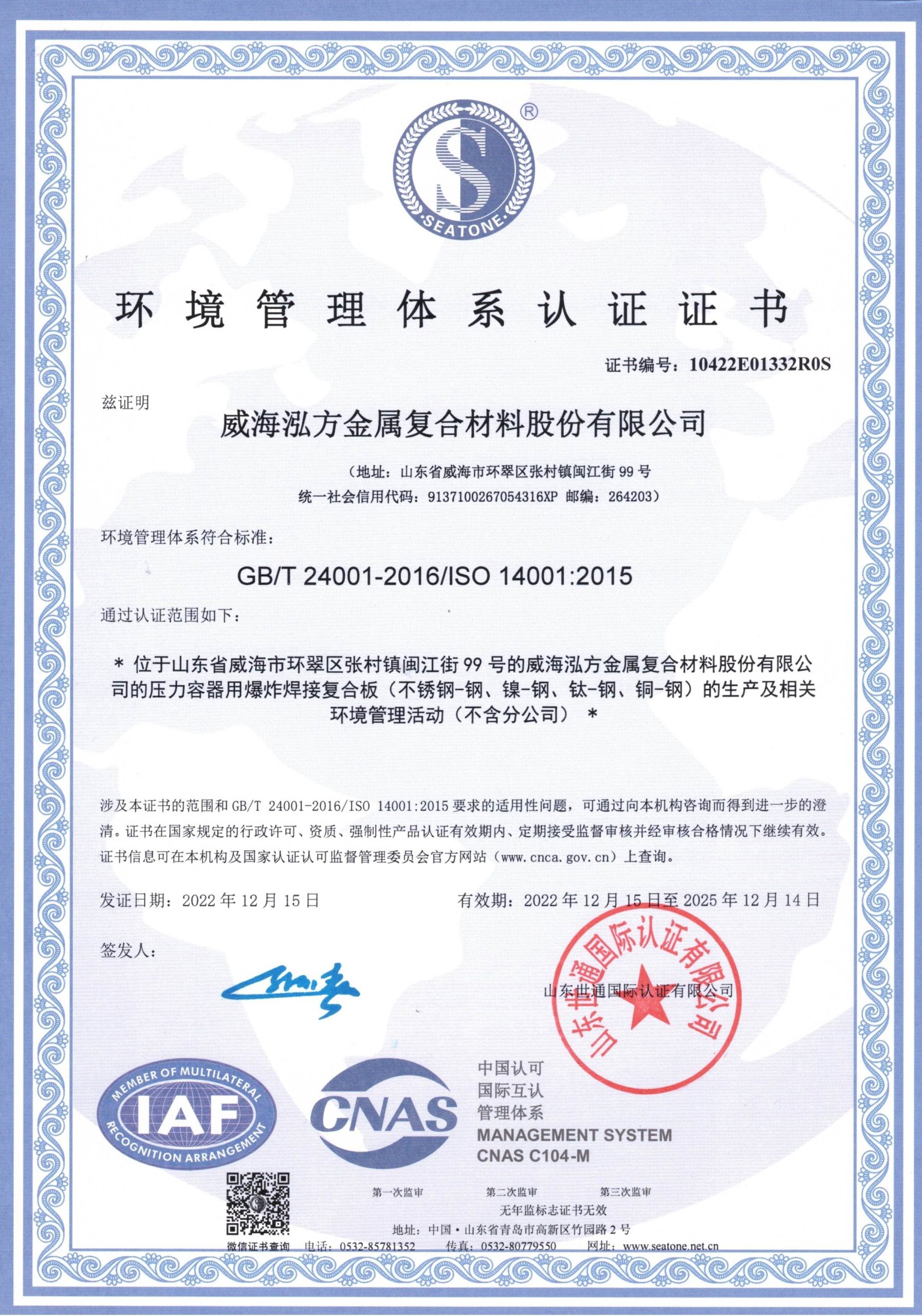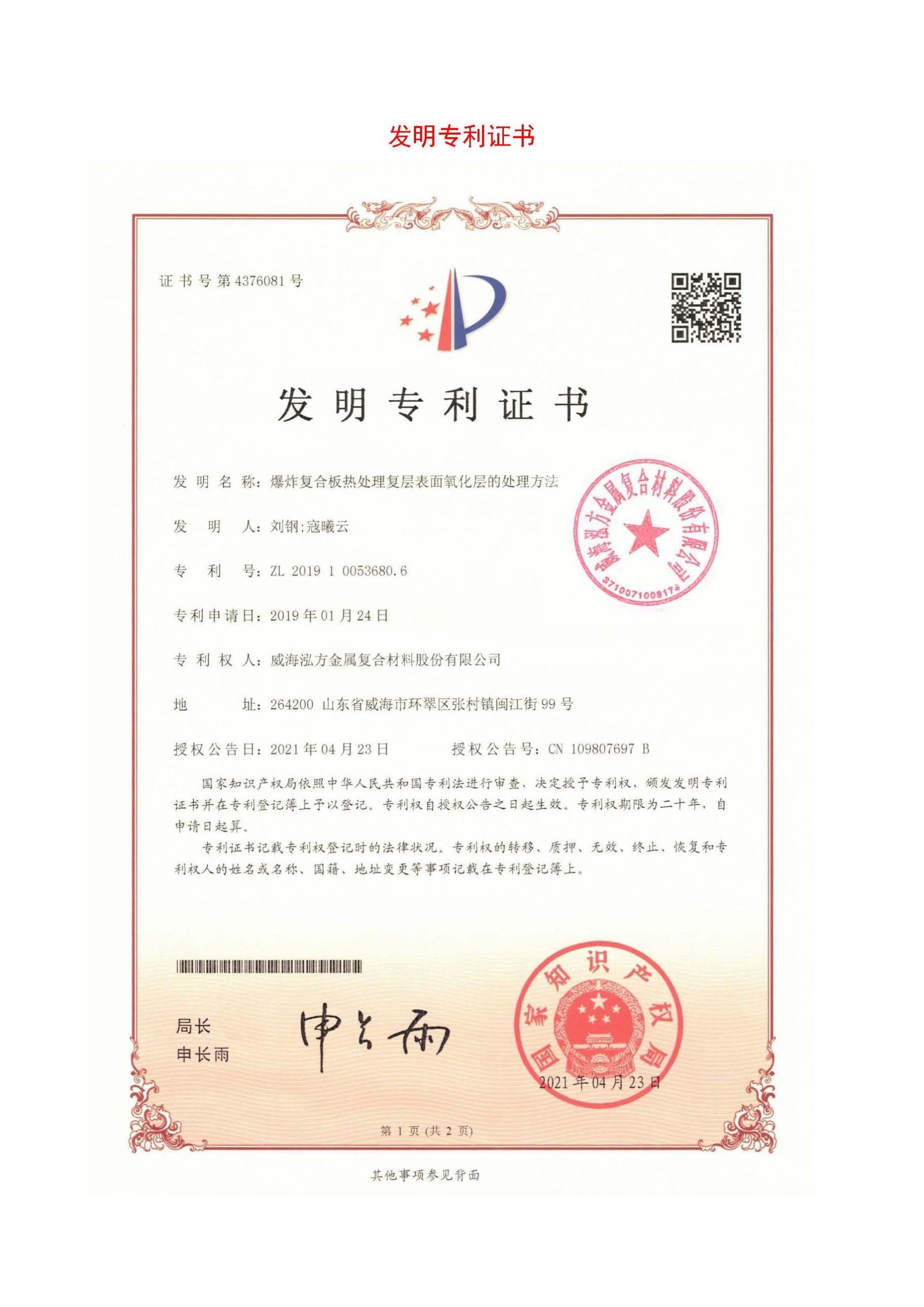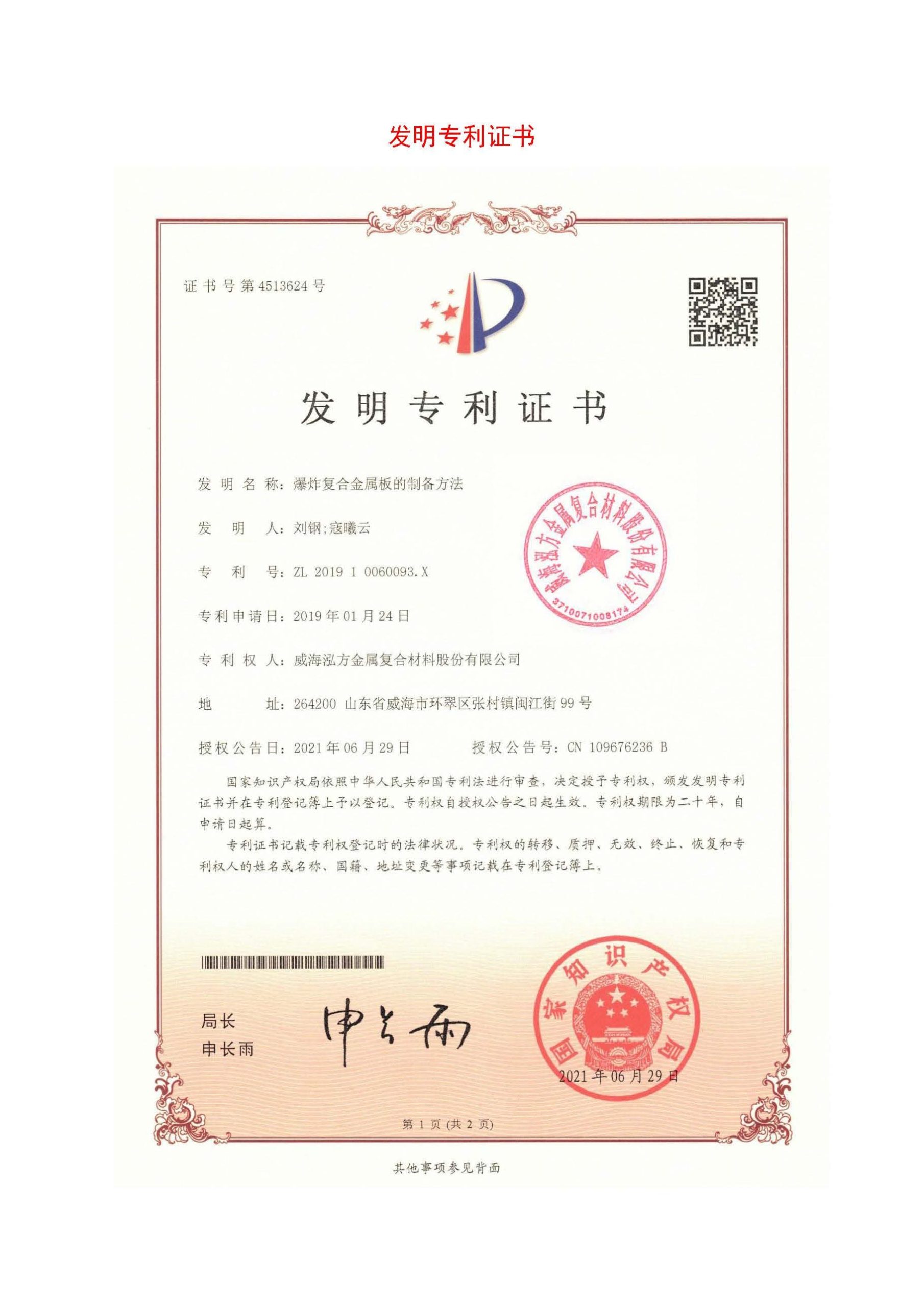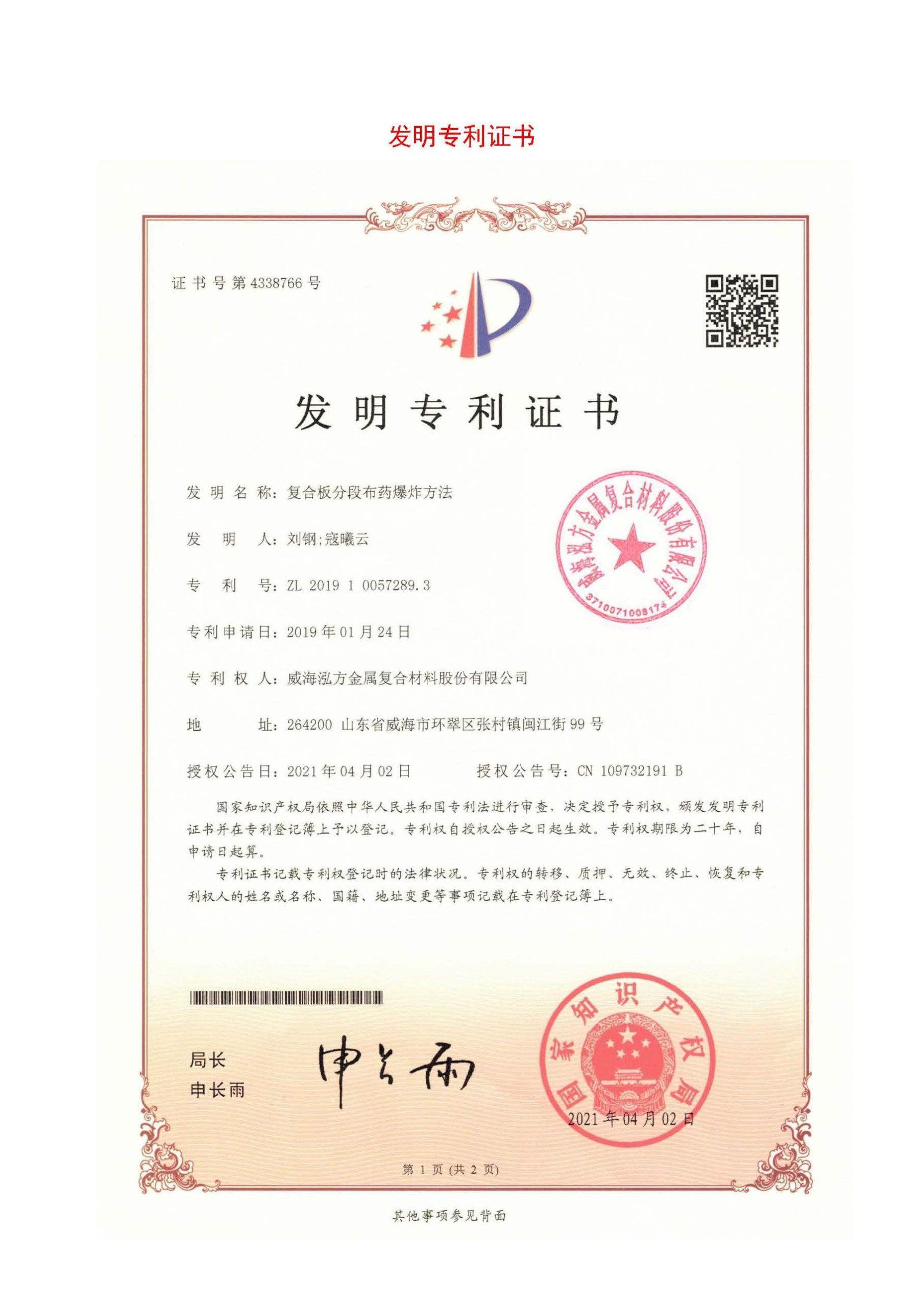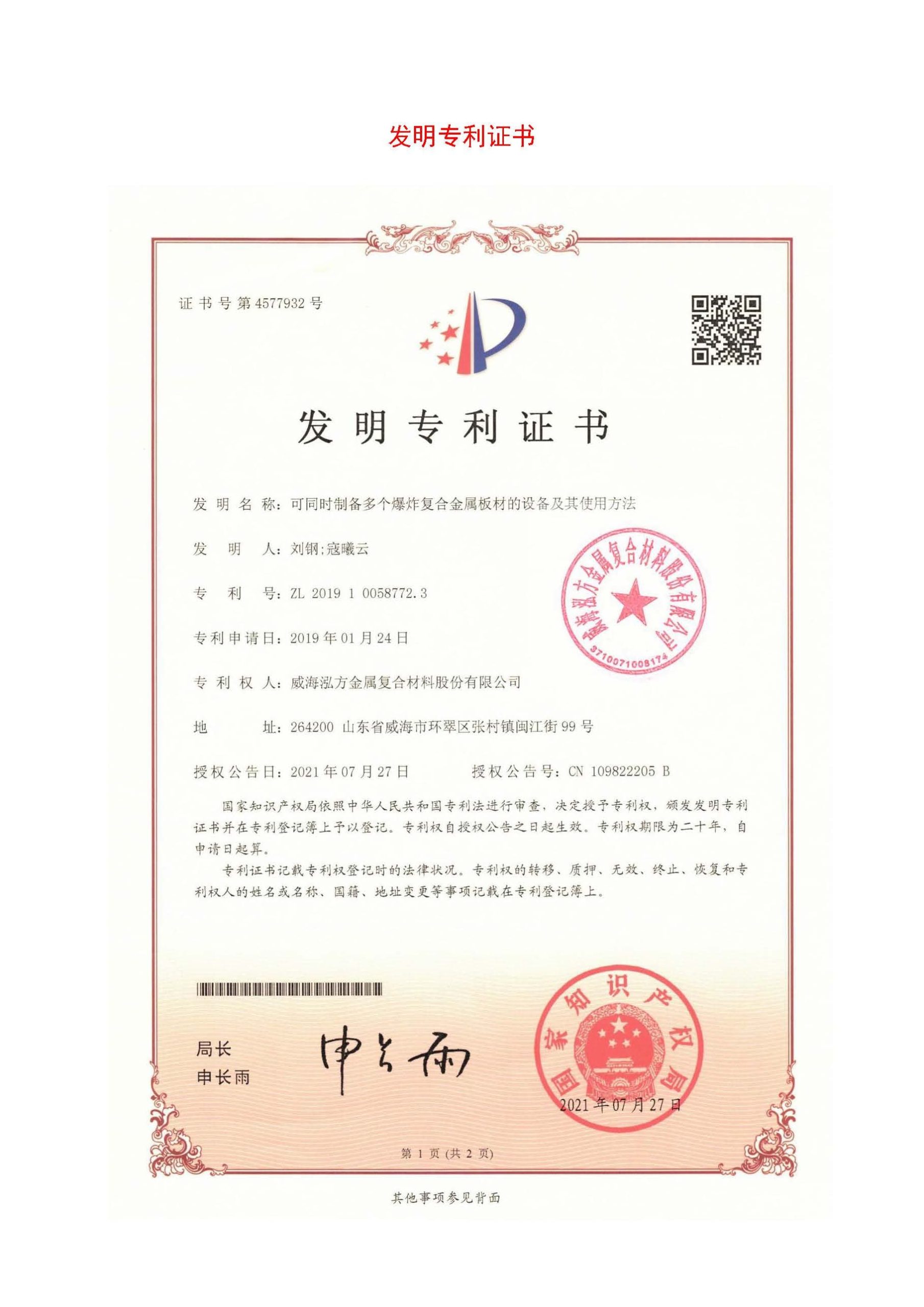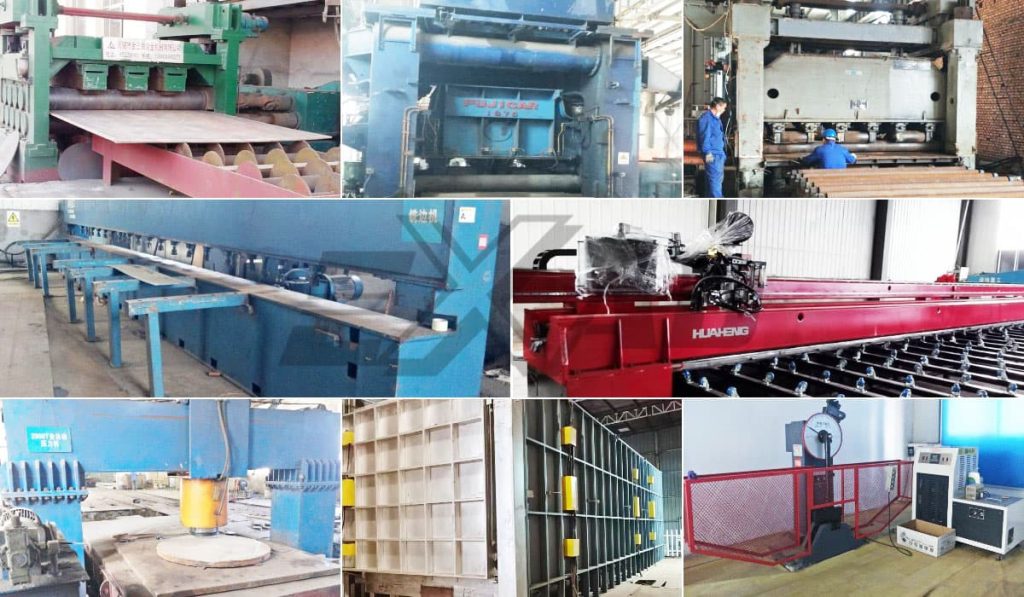The titanium-steel clad plate is a material formed by compositing titanium plate and steel plate through a specific process. This composite material combines the excellent properties of titanium, such as corrosion resistance, high strength, and low density, with the high strength and good processability of steel, offering broad application prospects.
Product Features
- Excellent Corrosion Resistance: Titanium exhibits outstanding corrosion resistance, capable of resisting the erosion of various corrosive media, such as seawater, brine, and chlor-alkali.
- High Strength: The titanium-steel clad plate not only possesses the corrosion resistance of titanium but also inherits the high strength of steel, enabling it to bear large loads.
- Good Processability: The titanium-steel clad plate is easy to cut, weld, expand, punch, and spin-form, facilitating processing into various shapes and sizes.
- Cost Reduction: Compared to pure titanium, the titanium-steel clad plate significantly reduces costs while ensuring performance, enhancing economic benefits.
Product Specifications
- Cladding Metal (Titanium):
- Grade: TA1, TA2, etc.
- Thickness Range: 0.5~12mm
- Base Metal (Carbon Steel or Alloy Steel):
- Grade: Q235B, Q345B, Q245R, Q345R, 16MnⅢ, etc.
- Thickness Range: ≥3.5mm
- Dimensional Specifications:
- Width: ≤4500mm
- Length: ≤15m (Customizable upon negotiation for sizes exceeding the above range)
Application Fields
Titanium-steel clad plates are widely used in fields such as petrochemicals, vacuum salt production, chlor-alkali, food, fertilizers, containers, bicycles, metallurgy, aerospace, and marine engineering. Specific application scenarios include manufacturing reactors, storage tanks, heat exchangers, and other equipment, as well as being used as corrosion-resistant materials for marine steel structures.
Quality Assurance and Testing
- Raw Material Inspection: Conduct strict raw material inspection on titanium plates and steel plates to ensure compliance with relevant standards and requirements.
- Production Process Control: Strictly control all aspects of the production process to ensure stable and reliable product quality.
- Finished Product Testing: Conduct ultrasonic flaw detection, tensile tests, bending tests, and other inspections on finished products to ensure compliance with relevant standards and requirements.

